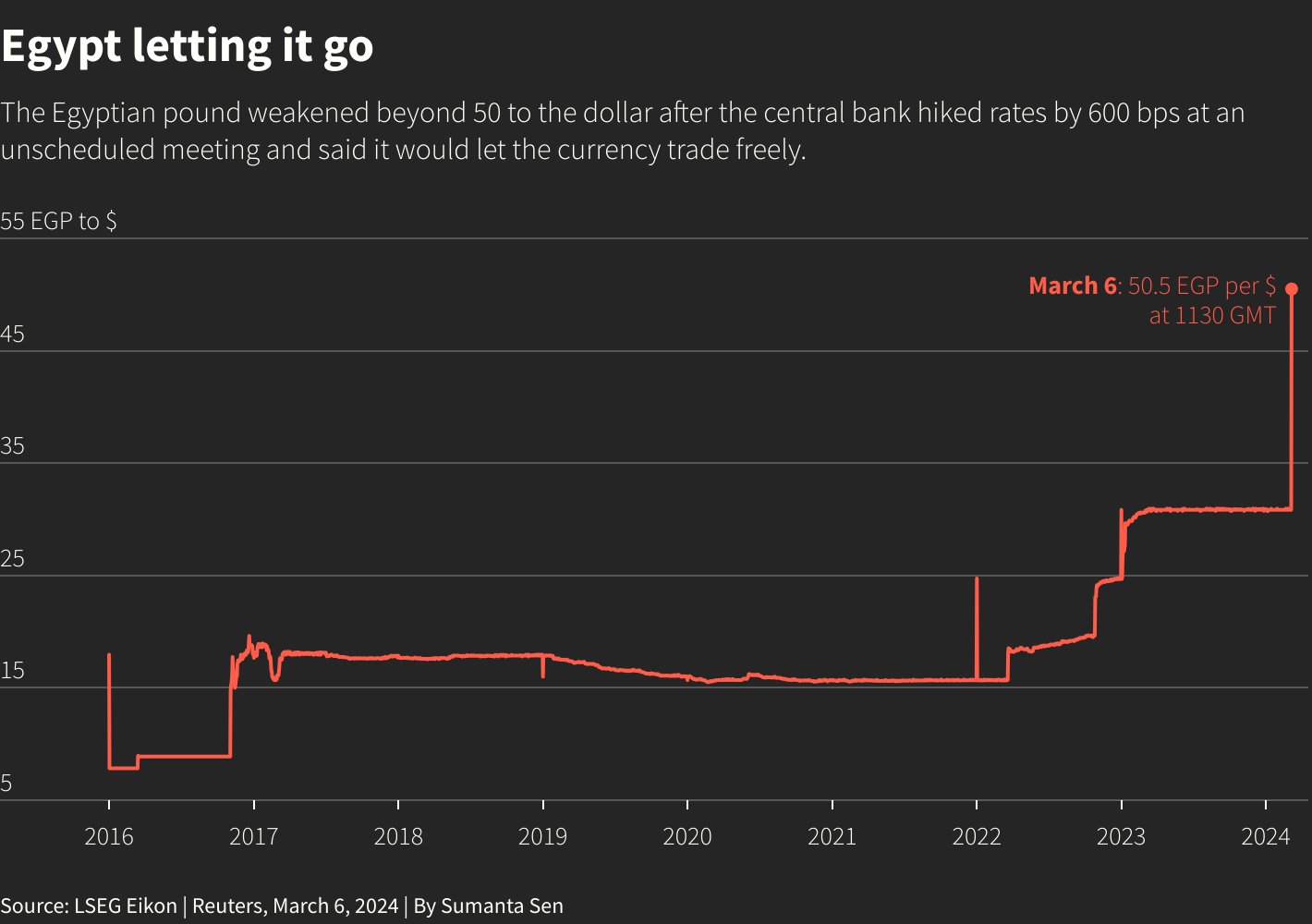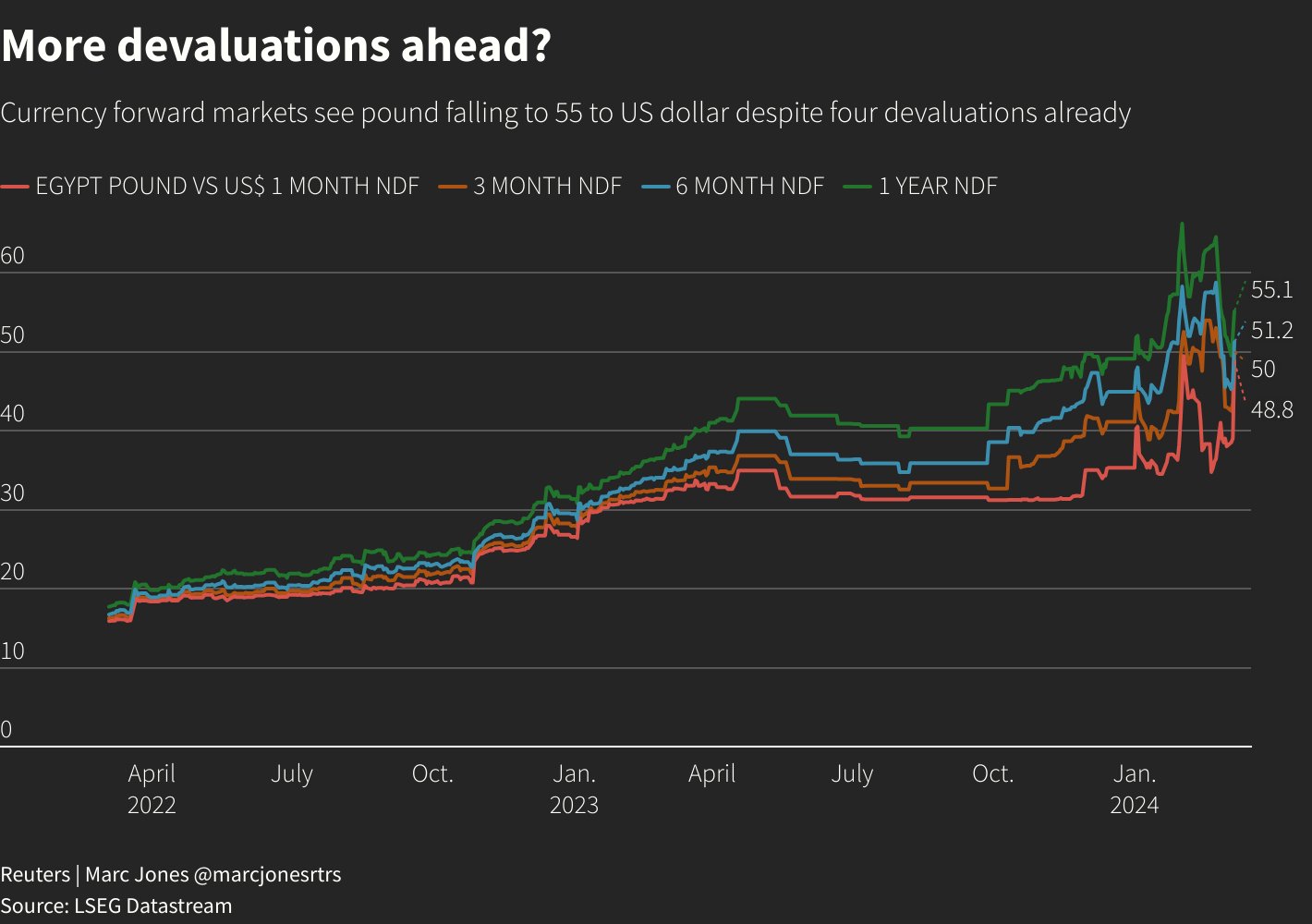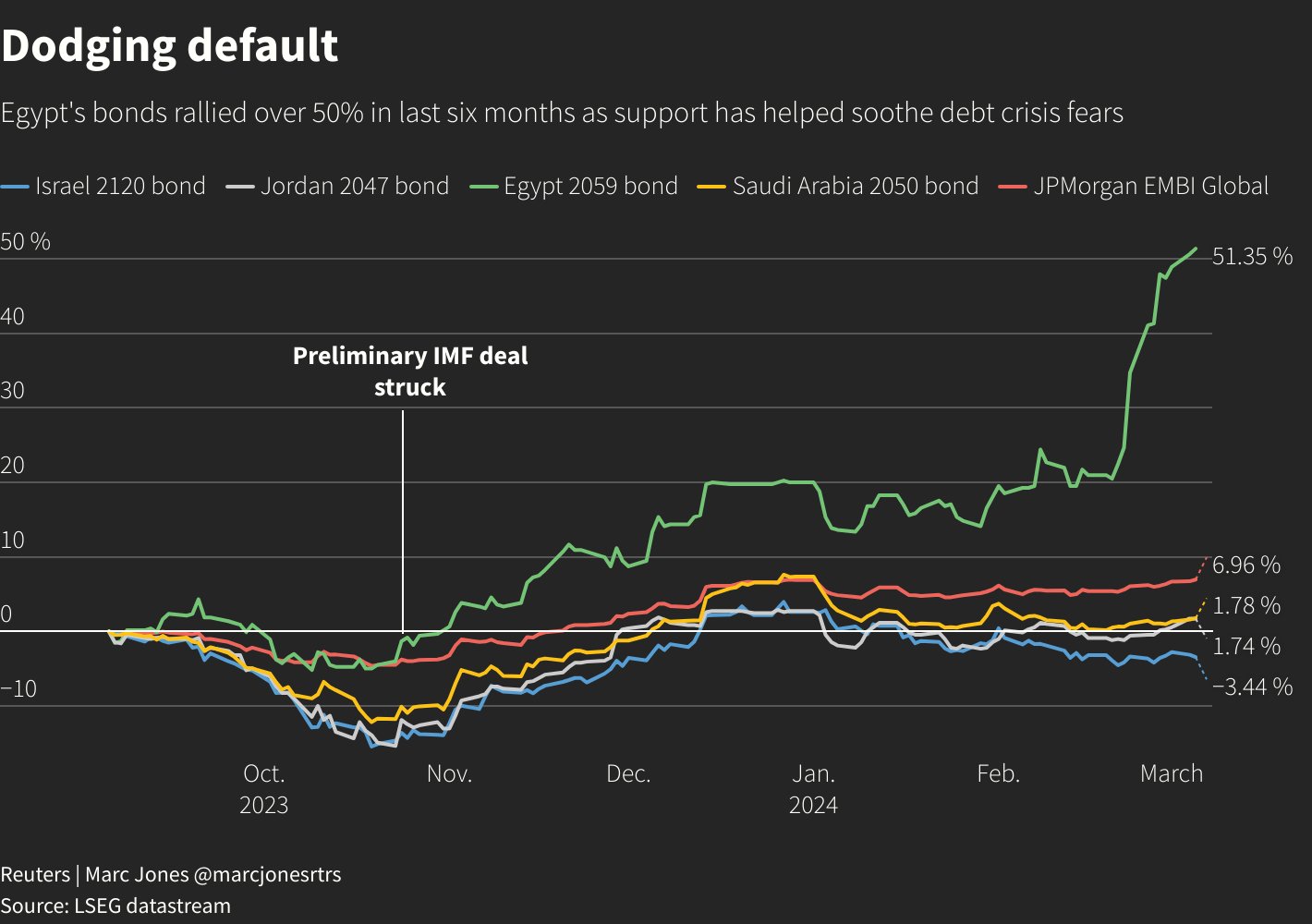Additionally, Egypt would obtain a $1.2 billion loan for environmental sustainability, bringing its total from the IMF to more than $9 billion, the government said. This was towards the lower end of what some analysts expected.
The currency weakened to beyond 50 Egyptian pounds to the dollar – far beyond previous records – from about 30.85 pounds, a level Egypt has for months tried to defend. It closed at 49.4 to the dollar.
Egypt has in the past said it would shift to a more flexible exchange rate, only to return to closely managing the currency whenever the pound weakened.
Analysts say doubts remain over commitment to structural reforms that have been repeatedly dodged, including reducing the sprawling economic interests of the state and the military.

“To ensure a smooth transition, the CBE will continue to target inflation as its nominal anchor, allowing the exchange rate to be determined by market forces,” it said in a statement.
“Sufficient funding has been secured to avail foreign exchange liquidity,” it said.
Central bank governor Hassan Abdalla told reporters that as in other countries, the bank would still have the ability to intervene if there were “illogical movements” in the currency.
While the central bank already had an inflation target, it also sought to manage the pound.
Egypt’s international bonds soared in early trading in anticipation of the IMF deal, with longer-dated bonds jumping around 4 cents before shedding some of the gains. The bonds eventually gave back most of the advance, with the 2047 up 0.2 cents at 79.9 cents, after rising as high as 83.5, according to Tradeweb data.
CLEARING BACKLOGS
The foreign currency shortage has curbed local business activity and led to backlogs at ports and delays in payments for commodities.
Remittances from Egyptians working abroad, the country’s top single source of foreign currency, have slowed sharply amid expectations that the pound would fall.
The war in Gaza and attacks on Red Sea shipping have put at risk receipts from tourism and Suez Canal traffic, two other main sources of hard currency.
“The unification of the exchange rate is crucial, as it facilitates the elimination of foreign exchange backlogs,” the central bank said.
Since early 2022, when the foreign currency shortage worsened, the pound has now lost more than two-thirds of its value against the dollar in a series of staggered devaluations.
On currency markets on Wednesday, one-month non-deliverable forwards stood at around 51 to the dollar – a touch above the spot rate – but 12-month contracts traded at just over 55 to the dollar, indicating the currency might have to adjust some more in the months ahead.

Another return to managing the exchange rate would limit the benefits of Wednesday’s move, said Kaan Nazli, portfolio manager at Neuberger Berman.
“I guess the proof will be in the pudding, but there is a bigger chance than before thanks to the UAE funding,” he said.
Along with arrears to foreign companies, Egypt also faces a heavy foreign debt repayment schedule after spending on mega-projects under President Abdel Fattah al-Sisi that has been questioned by critics and the government says it will rein in.
The banking system had a net foreign asset deficit of 841 billion Egyptian pounds ($27.2 billion) as of Dec 31.

Sign up here.
Reporting by Nayera Abdallah, Nafisa Eltahir, Nadine Awadalla, Aidan Lewis, Jana Choukeir Tala Ramadan and Karin Strohecker; Graphics by Marc Jones and Sumanta Sen; Writing by Aidan Lewis; Editing by Andrew Heavens, Tomasz Janowski, Ros Russell, Deepa Babington and Daniel Wallis
Our Standards: The Thomson Reuters Trust Principles.















